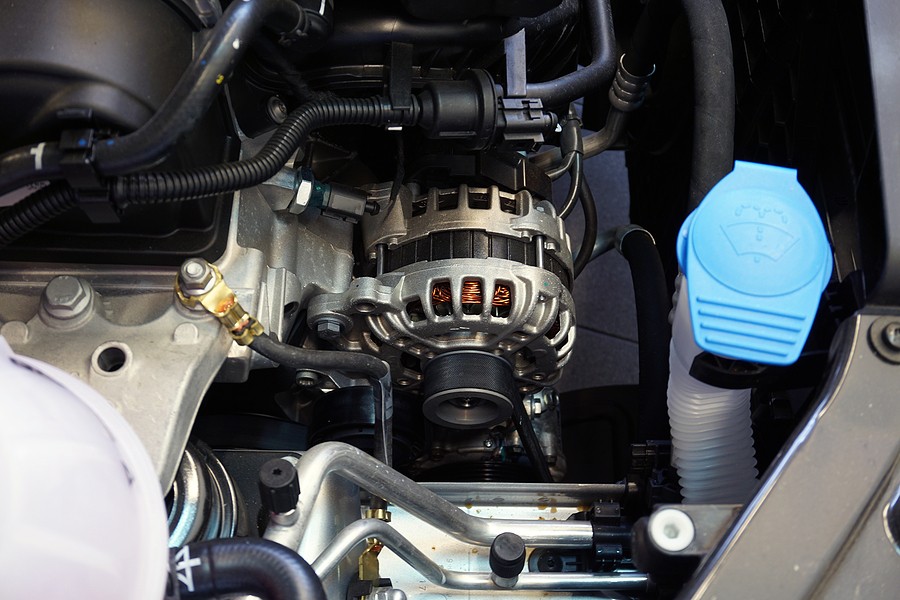If you're wondering, when do I need to replace the alternator, check out these ten important signs:
- Warning lights on the dashboard
- Battery problems
- Flickering or dimmer headlights
- Issues with accessories
- Very bright lights
- Loud noises
- Bad belts
- Strong bad smell
- Issues with charging
- Slow acceleration
Your vehicle contains lots of interacting components, and you may want to make sure that these components are always working properly. Hence, your vehicle provides you with the expected energy and serves you if possible. There are some instances where these components might fail, which is expected but what's more tricky is when these components fail before the end of their lifespan.
One of the most common components that might fail prematurely is your alternator. This component is extremely important for your electric system, and when it goes bad, it can make your driving experience a nightmare. Therefore, it is essential that you just wanted yourself with different bad alternator symptoms and helps yourself answer the question, when do I need to have a list alternator?
This article provides you with all you need to know about the different symptoms of a bad alternator. It also highlights some of the rough estimates about expected repair costs for placing your alternator, along with some details that help you maintain your alternator and delay premature damages.
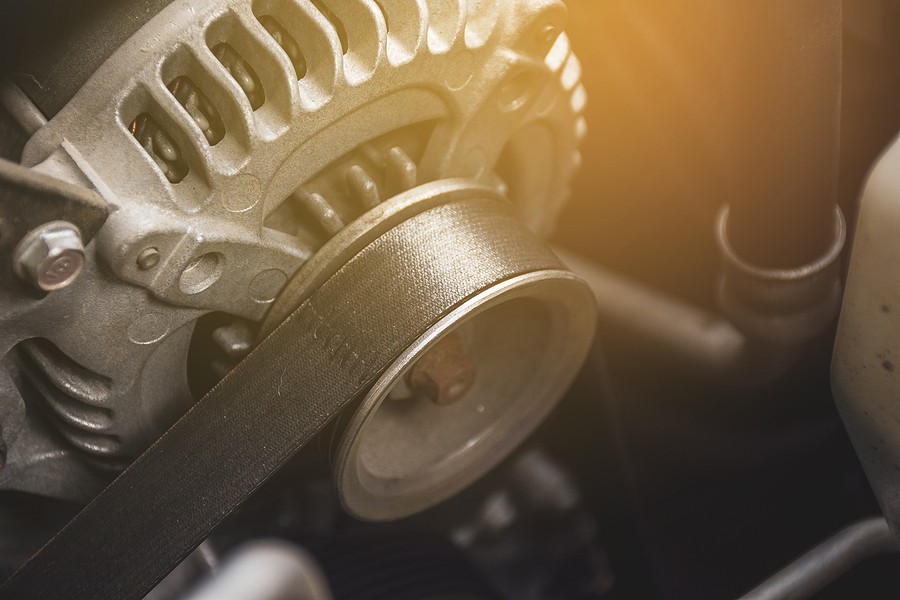
What is the alternator, and what does it do?
Before we dive into the details to help you answer the question, “when do I need to replace the alternator,” we must understand the purpose of this alternator in your vehicle.
The alternator is not a big component, but it plays a major role in how your vehicle functions. It is responsible for converting the engine's energy into electric current that charges any electric component as the engine is running. There is a very common misconception that the battery is doing this job and the battery is responsible for charging these components. However, it is the Alternators job.
That being said, the alternator must be working all the time perfectly. Anytime you're dealing with an issue you through your alternator, you'll see a related problem with the electric system. Things get more complicated if you're driving a modern car where the vehicle relies significantly on the elliptic system, especially for safety features.
How often do I need to replace the alternator?
Typically, the alternator should last between seven and ten years because it's a relatively durable component. However, there are some instances where your alternator might fail prematurely, and that's where you have to learn about the different symptoms of a bad alternator.
Keep in mind that the lifespan of your alternator differs significantly depending on your vehicle's grant and the quality of this alternator. Therefore, if you would like to estimate how long you would expect your alternator to last, you should check with your vehicle’s owner’s manual because it should have some more details. Otherwise, you might want to ask your mechanic.
When do I need to replace the alternator? 10 signs
As you mentioned earlier, the alternator typically lasts between seven and ten years, but there are some situations where it might fail prematurely. All my experts typically recommend familiarizing yourself with different symptoms that could help you detect any early signs of problems in your alternator. But, on the other hand, you don't want to wait until the last minute, when things get more complicated, and your vehicle is impacted significantly.
Typically, many signs could hint for you to check on the alternator and replace it as soon as possible.
Let's look at ten of the most common symptoms of that alternator to help you answer the question, when do I need to replace the alternator?
1. Warning lights on the dashboard
The 1st and most important thing you will notice when your alternator goes bad is the dashboard's warning lights. Depending on your vehicle's brand, you might see different warning lights parent. However, the rule of thumb here is never to ignore a warning light on the dashboard because it is a way for your vehicle to communicate with you and bring your attention to internal issues.
The faster you detect the problem, the easier it is for your mechanic to resolve the issue without installing major components. Therefore, it is always recommended that you immediately take these warning lights seriously and resolve the issue as soon as possible if you don't want to pay thousands of dollars for repair.
2. Battery problems
Another important symptom that you will notice is when you have bad alternator issues with your vehicle’s battery. The alternator and the battery work together, and each one has its job. In addition to charging the electric components, the alternator also is responsible for recharging the battery after you start your vehicle.
The battery is responsible for giving your vehicle the initial charge to get it started, and then it needs to be recharged after it has given all its charge. Thus, the battery will not get its chargeback without a perfectly running alternator. Therefore, you will notice it's taking some time, or you'll deal with troubles the next time you want to start your vehicle with a bad battery.
Some people might think that it's a battery problem; however, the alternator, not the battery, triggered the problem. Thus, to avoid dealing with starting problems and other hassles, you must take care of the alternator immediately and follow its recommended new vehicle’s owner’s manual in case you missed checking the alternator.
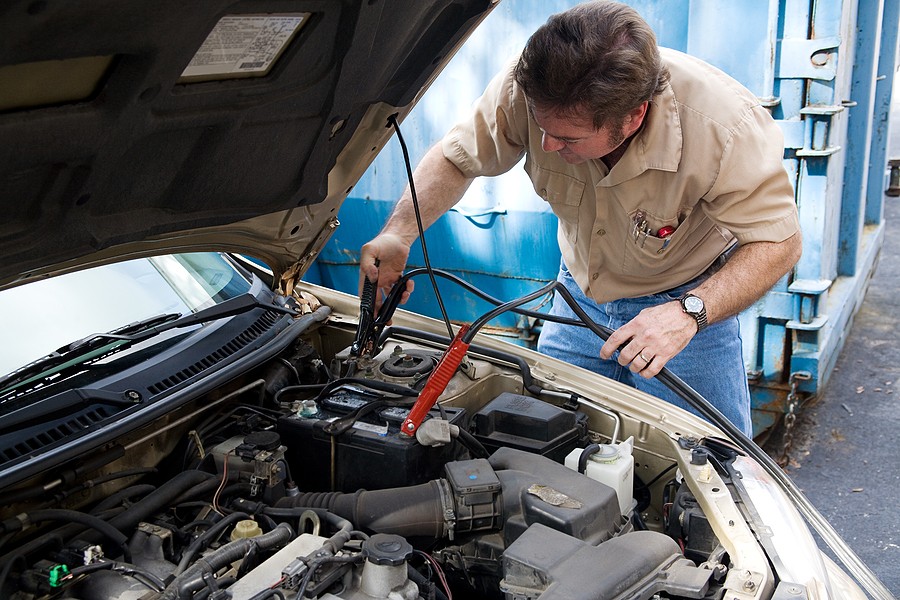
3. Flickering or dimmer headlights
With the alternator goes bad, you'll notice that the headlights are not working properly because it's not providing the necessary energy to charge all these headlights. Sometimes you might see that the headlights are flickering because the alternator or the battery is trying their best to charge the headlights, but the energy is not enough, and that's why you will see this flickering.
Many people might get confused between the alternator and the battery regarding who's causing the dimmer or flickering headlights. The quickest way to confirm is to run a quick jump start and see if bypassing the batteries job will help you get your vehicle started. If you didn't start, you're most likely dealing with a problem with the alternator.
4. Issues with accessories
As we mentioned before, the alternator is responsible for providing the electric charge to all of these vehicles' electric components. So when it's not working, it's not surprising to see some issues with these accessories.
Therefore, you must fix the alternator as soon as possible to avoid damage to the elliptic system. Keep in mind that when the alternator is bad, it doesn't only impact the performance of these accessories. Still, also it might cause further damage, especially for those sensitive accessories that get impacted this significantly by any problem with the alternator or the electric supply.
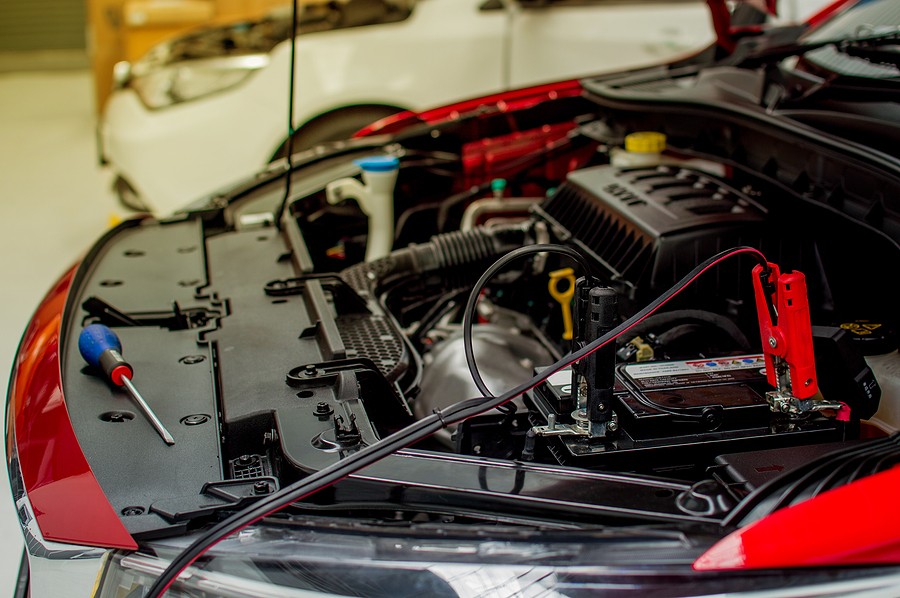
5. Very bright lights
In addition to the dimmer and flickering headlights, you might notice that the lights are much stronger than before. One might think that this is a great thing; however, that's not the case. If you notice some strong brightness in your headlights, consult your mechanic because it could be a strong sign of a failing alternator.
6. Loud noises
The alternator should not be very loud in normal conditions. If you started noticing some weird noises coming from the alternator side, it could be that they are getting close to the end of the alternator's lifetime.
Typically, these noises would come from the belts connected to the alternator and when these belts are in bad condition, you'll notice some strong whining or growling noises.
As a rule of thumb, come out, you don't want to forget about any of these noises because it's another way for your vehicle to communicate with you and bring your attention to internal problems. Sometimes the noises could be linked to minor issues, but they could indicate a significant problem in many situations, and that's why you should never ignore them.

7. Bad belts
As we mentioned earlier, the alternator is connected with some belts to your engine, and if these belts are loose or have problems, that's a good sign you need to check on the alternator. On the other hand, it could be that the alternator is still in good condition, but these belts are not connected properly. Solutions for this problem could include tightening these belts or replacing them, which means you don't necessarily have to replace the alternator in this case.
8. Strong bad smell
One of the most common symptoms of a bad alternator is starting to smell some strong burning smells. This happens when the alternator is overheating and starts burning the rubber or plastic components around it.
Another recommendation is never to ignore any weird smell coming from your vehicle. Sometimes this smell might be a good smell which indicates some internal issues, especially those related to coolant leaks. Therefore, you must take the issue seriously whenever you start smelling something strong and check with your mechanic because he should have a good recommendation about what needs to be done next.
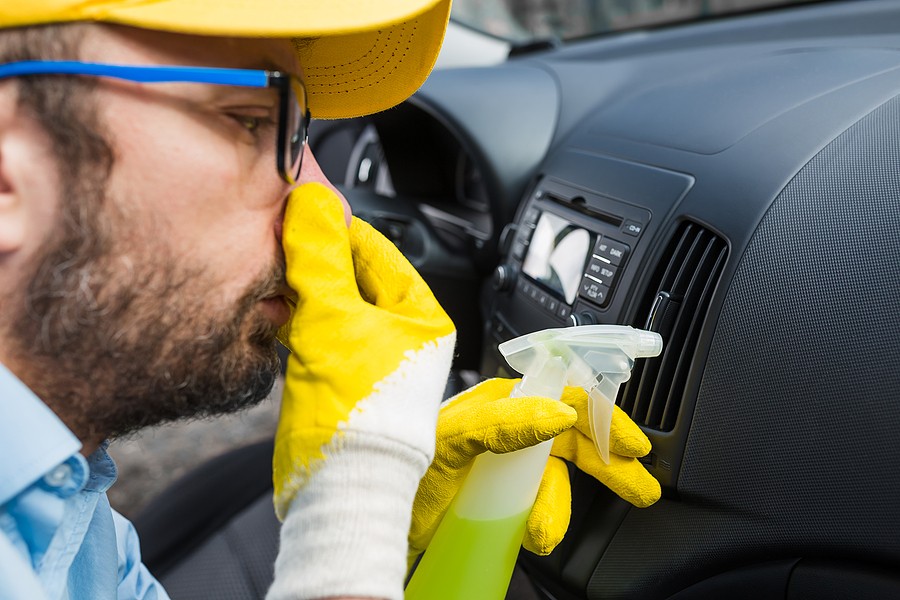
9. Issues with charging
When the alternator is not working properly, you'll see some problems in the charging system. It could be that the charging system is very slow or it's not holding the charge at all. Thus, check with your mechanic and consider inspecting the alternator whenever you notice something like this because it could be the culprit.
10. Slow acceleration
Finally, that alternator might impact the overall vehicle performance, including acceleration issues. Many customers complained that they noticed that the vehicle takes some time until it exploits whenever they try to hit the gas pedal.
While there are many potential reasons for this problem, about alternator could be involved, and once fixing this alternator, you will see a significant difference in your vehicle's performance.

How much does it cost to replace the alternator?
Replacing the alternator is not a major car repair, and it typically costs you somewhere between $350.00 and $400. However, this price ranges significantly depending on your vehicle's brand and where you get the job done.
Keep in my best if you have the right skills to replace your order, you shouldn't be too worried about labor costs again. The overall bills should be much lower. However, unless you've done it before, you're not recommended to replace your alternator to avoid causing problems by mistakes.

Final thoughts
The alternator is an important component in your vehicle, responsible for charging all electric systems. It's not surprising to deal with premature damages in the alternator, and that's where you'll see many symptoms ranging from minor to significantly major. Therefore, it is essential for you as a driver to understand the main symptoms of a bad alternator and help yourself answer the question, when do I need to replace the alternator?
This article highlighted everything you need to know and should serve as a detailed guide on when to replace the alternator. Remember that while the alternator replacement is not very expensive, it might not be worth there are placement if you have other damages in significant components like the engine or the transition.
If you think that your vehicle is not worth the repair, it's not the end of the world because Cash Cars Buyer is always here to help you, and we'll buy your vehicle no matter what!
Cash Cars Buyer is one of the top-rated car removal companies in the nation that guarantees to pay you the top dollars and provide you with free towing despite your living location around the United States.
Our process is very straightforward and doesn't take more than a couple of days to get your car removed safely and for the most money.
All it takes you is to:
- Describe your car's type and condition
- Receive our instant free quote
- Accept the quote
- Get your car removed and receive your cash payment on the spot!
To learn more about our process and our team, you can reach out to us by calling us at (773) 781-4363 or visiting our home page click on the free instant online offer.

